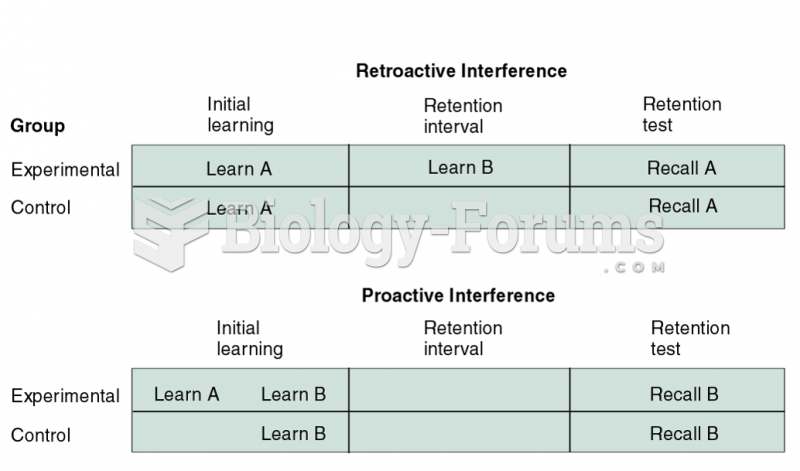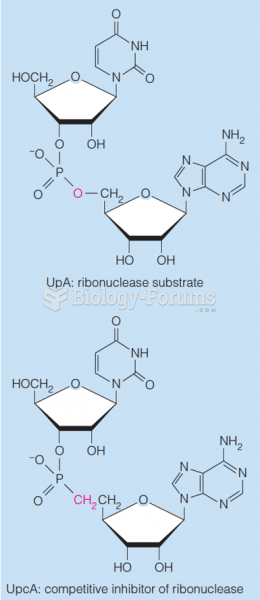This topic contains a solution. Click here to go to the answer
|
|
|
Did you know?
If you use artificial sweeteners, such as cyclamates, your eyes may be more sensitive to light. Other factors that will make your eyes more sensitive to light include use of antibiotics, oral contraceptives, hypertension medications, diuretics, and antidiabetic medications.
Did you know?
There are approximately 3 million unintended pregnancies in the United States each year.
Did you know?
The longest a person has survived after a heart transplant is 24 years.
Did you know?
Long-term mental and physical effects from substance abuse include: paranoia, psychosis, immune deficiencies, and organ damage.
Did you know?
There are more sensory neurons in the tongue than in any other part of the body.







